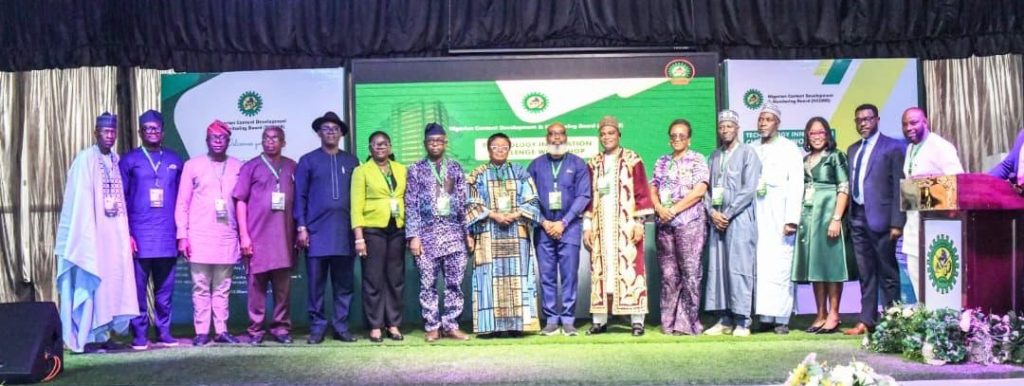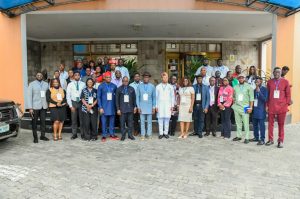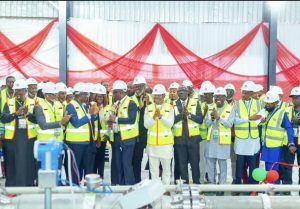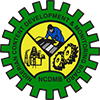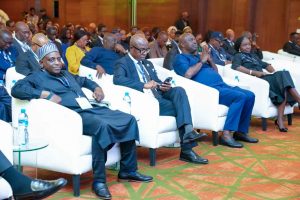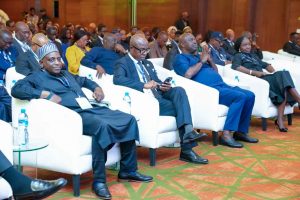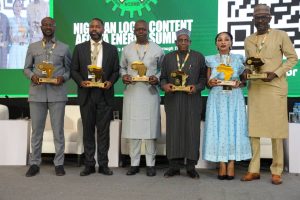The Nigerian Content Development and Monitoring Board (NCDMB) on Tuesday charged oil and gas industry stakeholders to prioritise research and development (R&D) as a pathway to the development of homegrown technology to deal with operational challenges in the sector and to retain industry spending.
The strategy, according to the Executive Secretary of the Board, Engr. Felix Omatsola Ogbe, is consistent with provisions of the Board’s enabling statute, the Nigerian Oil and Gas Industry Content Development (NOGICD) Act, 2010, and objectives of the 10-Year Strategic Research and Development Road Map, launched by the NCDMB in 2019.
In a welcome address at the NCDMB-sponsored Technology Innovation Challenge (TIC) Workshop, themed “Stimulating Industry and Economic Growth through Indigenous Technology Innovation,” held in Port Harcourt, the Executive Secretary said Sections 36-39 and 70(m) of the aforesaid Act mandates the Board to drive and coordinate R&D activities in the oil and gas industry, which has culminated in a number of initiatives.
The R&D roadmap, he noted, identified eight strategic pillars, namely, finance, infrastructure, technical capability, governance, collaboration, legal framework, enforcement, and “Commercial Framework.” In addition, the Board established the Nigerian Content Research and Development Fund in 2021 with an initial seed capital of US$50 million to close identified funding gaps, and also introduced the NCDMB Technology Innovation and Incubation Strategy in same year.
The latter Strategy has birthed the Amal Technology Printed Circuit Board manufacturing facility, Abuja, and facilitated a further 14 applied research projects presently sponsored by the Board, which are at various technology readiness stages. Other impactful research projects are expected to be onboarded in the upcoming months at the conclusion of the aforesaid Innovation Challenge competition.
Other initiatives of the Board, listed by Engr. Ogbe, include the establishment of six Centres of Excellence with specific thematic areas at Niger Delta University (Engineering Studies); Federal University of Technology, Akure (Geology and Geophysical Studies); Federal University of Technology, Owerri (Local Raw Materials Substitution Studies), Federal University of Technology, Minna (Technology Development Studies); Modibbo Adama University, Yola (Safety, Health and Environment Studies), and Usmanu Danfodiyo University, Sokoto (Renewable Energy Studies).
Engr. Ogbe, who was represented by Mr. Ene Ette, Ag. Director, Planning, Research and Statistics, disclosed that the NCDMB Research and Development Council and the Board’s Management have agreed that “a lot more needs to be done to catalyse research and development locally,” and that the innovation workshop was “to create awareness and guidance on how to meet the criteria for the [upcoming] Innovation Challenge.”
He concluded his address with a call on industry stakeholders to regularly furnish the academia with their operational challenges to enhance deep research, noting that once a sustainable R&D investment culture is attained, it would be mutually beneficial to the public and private sectors.
In a context-setting overview of the workshop, the Acting General Manager, Research Statistics, and Development Division, in NCDMB, Ms. Tassalla Tersurgh, said it was a build-up to the Board’s Technology Innovation Challenge 2025, a competition which seeks to identify, to nurture and develop new technologies from start-up companies, slated for the later part of the year.
The Challenge, according to her, is designed and structured to stimulate creativity and promote originality by providing a platform for innovators “to showcase ground-breaking solutions to address identified operational challenges within the Nigerian oil and gas industry.” It is also intended “to serve as a catalyst and springboard to facilitate and scale up viable innovation through commercialisation, ensuring that promising ideas are transitioned from concept and prototype stages into market-ready products/services.”
In closing remarks, Engr. Mofe Mogbele, Manager, Planning and Policy Department of NCDMB, described the workshop as “an awesome gathering,” and the presentations made by resource persons as highly educative and most useful for participants who would be involved in the Innovation Challenge. He called on all stakeholders to keep up the momentum to achieve desired objectives.
Among the resource persons were Professor Damian Paul Aguiyi, who spoke on “Hydrocarbon Pollution Remediation Project”; Prof. Ifejinwa Achamba, Dean PANA Academy; Prof. Yelebe Zekiene, of Niger Delta University, Amassoma; Prof. Bede Anusionwu, of Federal University of Technology, Owerri; Prof. John Amiga, of Federal University of Technology, Akure; Prof. Mukhtar Abubakar, of Federal University of Technology, Minna; Prof. Bashir Aliyu, of Modibbo Adama University, Yola, and Prof. Muazu Musa, of Usmanu Danfodiyo University, Sokoto.
Also on the NCDMB at the event were Doris Opuwari, General Manager, NCDMB Learning Academy; Teddy Bai, Head of Government Relations, representing Dr. Obinna Ezeobi, General Manager, Corporate Communications Division; Babatunde Akhihiero, Manager, NCDMB Joint Qualification System and E-Marketplace, and Ifeanyi Nwokemodo, Supervisor, Corporate Communications Division.
Discover more from Nigerian Content Development & Monitoring Board
Subscribe to get the latest posts sent to your email.
